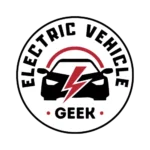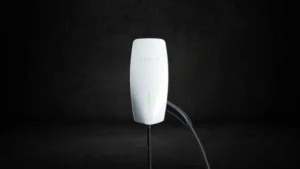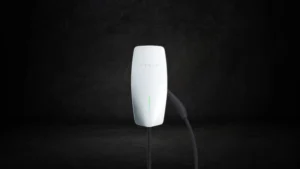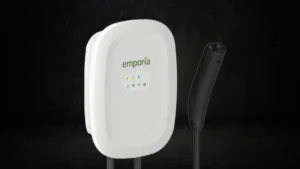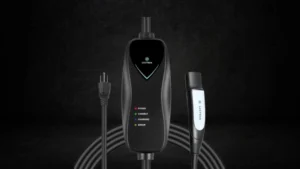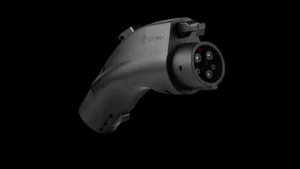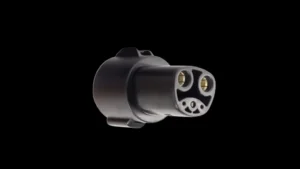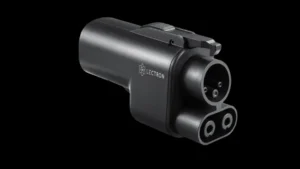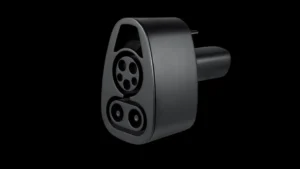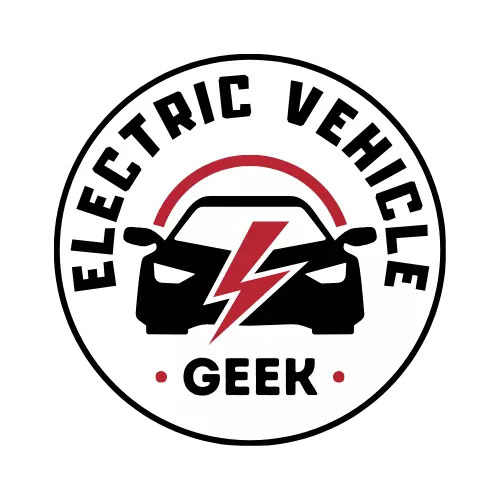Supported by you via insider access, and when you purchase through links on our site, we may earn an affiliate commission. See our Affiliate Disclosure.
Best CCS to Tesla Adapters
Shop expert-reviewed CCS to Tesla adapters for high-speed Level 3 DC fast charging at public CCS stations. Compatible with Tesla Model 3, Y, S, X, and Cybertruck via CCS1.
Shop the Best CCS Adapter for Tesla – Expert Reviewed Collection
Explore the best CCS adapters for Tesla, handpicked for safe, high-performance DC fast charging. These expert-reviewed adapters let compatible Tesla models charge at third-party CCS fast chargers across North America, with speeds up to 250 kW, depending on charger output and vehicle compatibility.
We recommend the following CCS to Tesla adapters based on build quality, electrical safety, secure locking, and high-speed charging reliability. These adapters are rigorously tested to handle the demands of DC fast charging, helping Tesla owners charge more flexibly on networks like Electrify America, EVgo, and others using the CCS Combo 1 standard.
What Is a CCS to Tesla Adapter?
A CCS to Tesla adapter enables compatible Tesla vehicles to charge using DC fast chargers equipped with the CCS Combo 1 (CCS1) connector. Unlike AC adapters such as J1772-to-Tesla, CCS adapters handle direct current (DC) at much higher power levels, often ranging from 50 kW to 250 kW.
The adapter bridges Tesla’s proprietary charging port with the CCS1 plug by rerouting high-voltage DC power and control signals through a specially engineered connection. Some adapters are passive, while others feature embedded electronics for communication protocol compatibility and real-time thermal management.
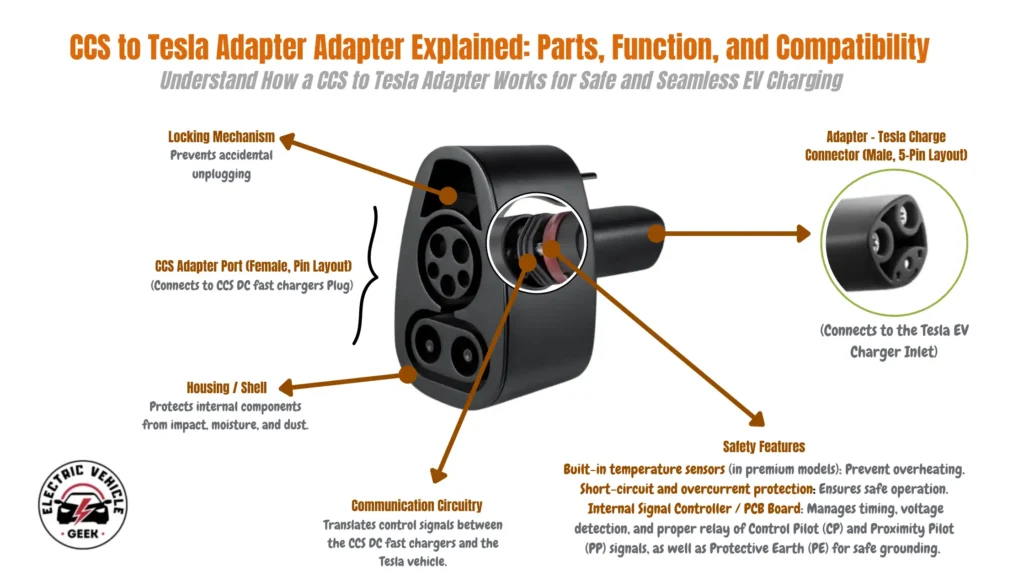
Note: Only Tesla models with CCS support enabled via firmware and equipped with a CCS-enabled charge port (e.g., Model 3 and Model Y from 2020+, and certain Model S/X vehicles after retrofit) can use these adapters.
How the CCS to Tesla Adapter Works
The CCS to Tesla adapter plugs directly between a CCS1 charging cable and a Tesla vehicle’s charge port, enabling high-speed Level 3 DC fast charging. It allows compatible Teslas, such as the Tesla Model 3, Y, S, X, and Cybertruck, to draw high-voltage DC power, often up to 500 amps and 1000 volts, depending on the adapter and charger used.
Beyond power transfer, the CCS to Tesla adapter facilitates digital communication between the public charging station and Tesla’s Battery Management System (BMS). This ensures the charging session is authorized, safely managed, and optimized for the battery’s state of charge.
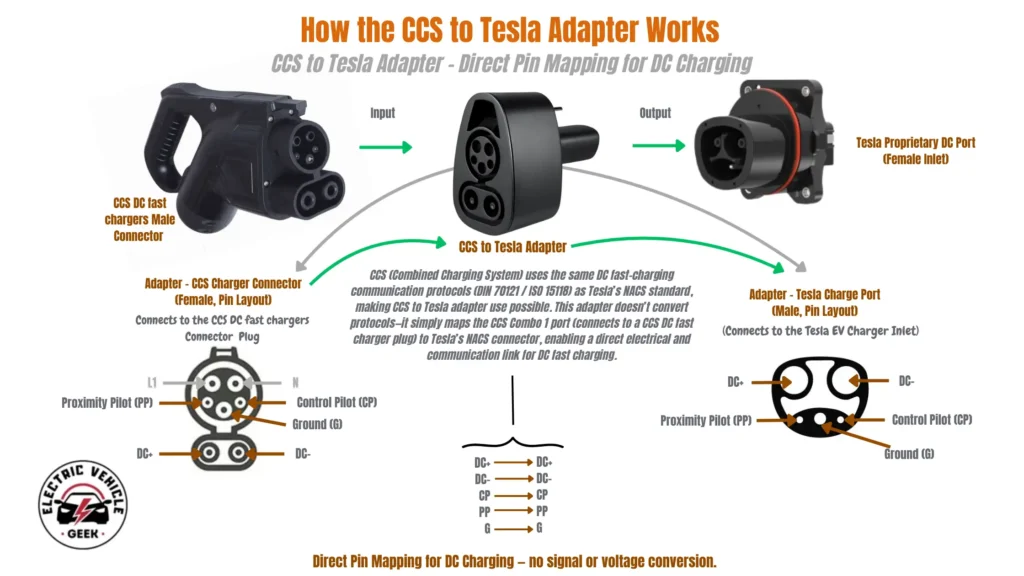
Internally, the CCS to Tesla adapter handles the negotiation of charging parameters with the EVSE (Electric Vehicle Supply Equipment), aligning with both CCS power delivery standards and Tesla’s unique charging protocols. Some high-performance CCS to Tesla adapters even feature embedded electronics, firmware, and active thermal regulation systems to prevent overheating during extended high-speed charging sessions.
Common Issues with CCS to Tesla Adapters
CCS to Tesla adapters enable high-speed DC fast charging for compatible Tesla models, but improper use or low-quality products can lead to significant performance and safety problems, especially under continuous or high-amperage operation.
One of the most common technical risks is electrical arcing, which can occur during plugging and unplugging—particularly if done while the charger is energized. Arcing can pit, melt, or oxidize the metal contacts inside the adapter and charger plug, degrading charging efficiency and long-term reliability. Over time, frequent plugging and unplugging adds mechanical stress that weakens the connector pins, reduces spring tension, and increases resistance at the contact points. This raises the risk of voltage drop, overheating, and even adapter failure under high current loads.
These problems are magnified when using poor-quality CCS to Tesla adapters. Inexpensive or untested units often lack the robust internal construction, conductor thickness, thermal regulation, and pin precision needed for safe, consistent high-power charging. Many of these adapters also omit critical features such as integrated temperature sensors, strain relief mechanisms, and high-durability housing materials. As a result, they may overheat, deform, or fail during sustained DC charging, posing risks to both the vehicle and charging infrastructure.
Overheating is one of the most serious concerns, especially at Level 3 public charging stations where power levels can exceed 250 amps. If the adapter lacks adequate thermal management, whether through internal cooling, phase-change materials, or heat-dissipating alloys, its components may overheat, triggering power throttling, session interruptions, or, in extreme cases, thermal damage and fire risk.
Compatibility limitations can also prevent successful charging. Not all Tesla models support CCS charging natively. Owners must confirm CCS capability via in-car settings or verify a hardware retrofit has been completed. Attempting to use an adapter on an incompatible vehicle will result in charging failure.
Another major pain point is handshake failure, when Tesla’s onboard computer and the CCS charging station fail to communicate properly. This can be caused by software mismatches, outdated firmware, or poor adapter signal handling. Reliable adapters include updated firmware, embedded electronics, and compliance with Tesla’s proprietary charging protocols to ensure consistent power delivery and vehicle recognition.
Finally, a secure locking mechanism is essential. Adapters with weak latching systems may disconnect mid-session, leading to sudden power loss or physical damage to the vehicle port. Some models have been known to get stuck in the charge port due to poorly aligned pins or deformed housing.
Tesla software updates may also affect third-party adapter performance. Premium brands generally release firmware updates to maintain compatibility, while low-end adapters may not support ongoing software integration, making them obsolete after major Tesla updates.
For these reasons, Tesla owners should carefully choose CCS to Tesla adapters that are well-reviewed, tested for long-term reliability, and designed for safe, repeated use under high DC loads.
Should You Use a CCS Adapter for Tesla?
Yes! A CCS to Tesla adapter is a vital EV charging accessory for Tesla drivers who want access to a wider network of DC fast chargers, especially in regions where Tesla Superchargers are limited, crowded, or unavailable. By unlocking compatibility with thousands of CCS stations, it helps reduce EV range anxiety and makes long-distance travel more practical, flexible, and stress-free.
It’s particularly useful for long-distance road trips, travel through rural areas, or routes with more extensive CCS infrastructure. In these cases, having a reliable CCS adapter for Tesla can greatly expand your charging options and reduce downtime.
Before using one, it’s important to confirm that your Tesla supports CCS fast charging. Some models require a hardware retrofit, while others are already CCS-ready.
You should also choose an adapter rated for the power levels you expect—ideally, one tested for high amperage use and built with proper safety features. Not all adapters are equal in performance or durability.
To extend its lifespan, regularly inspect the adapter for wear, store it in a clean, dry place, and avoid dropping or forcing the connectors. Careful handling helps prevent charging issues and ensures a safe connection every time.
While CCS adapters for Tesla offer flexibility, a dedicated Tesla-compatible NACS (North American Charging Standard) charger delivers a faster, safer, and more consistent charging experience, especially for daily use at home or high-power charging on the go.
NACS chargers are designed specifically for Tesla vehicles and eliminate many of the common issues seen with the CCS to Tesla adapter, such as handshake errors, power throttling, and heat buildup. They connect directly to your Tesla’s charge port without conversion, minimizing resistance and maximizing charging speed and safety.
Our expert-reviewed selection of NACS EV chargers includes top-rated hardwired and portable options tested for reliability, build quality, and long-term performance. Whether you’re installing a home charging station or preparing for road trips, a NACS charger ensures future-proof compatibility and superior charging performance compared to adapter-based solutions.
Our Top Pick
For better long-term safety, faster charging, and peace of mind, we recommend upgrading to a high-quality NACS charger instead of relying solely on CCS adapters.
Looking for a comprehensive guide to EV charger adapters? these four adapter types are the most widely used by EV drivers in North America.
